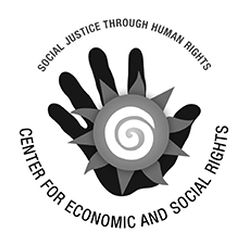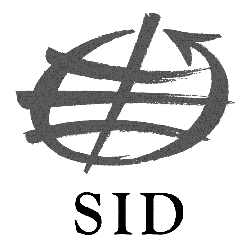By Housing and Land Rights Network – Habitat International Coalition (Cairo)
At the historic confluence of civilizations, peoples, religions and deeply intermingling cultures, the Middle East and North Africa (MENA) region also features majestic obstacles to achieving SDG 6. The characteristic scarcity of water and the dire consequences of climate change combine with human-made hazards of weak water governance, inequitable distribution, poor infrastructure, the world’s highest rate of capital flight, mega projects altering major water courses, as well as creeping privatization of this vital resource. [fn]Luhebe/al-Shamri (2015). [/fn]
While water may be a subject of potential conflict in all regions, only in Palestine is it the object of institutionalized material discrimination, [fn]Report to the French National Assembly “La géopolitique de l’eau” (rapport No. 4070, 13 December 2011, www.assemblee-nationale.fr/13/rap-info/i4070.asp), p. 30. [/fn] whereby the Israeli parastatal Mekorot is chartered to dispossess and administer the water resources of the indigenous Palestinian people and deny their equitable access to it, overtly privileging the foreign immigrant and settler population. [fn]Rabi (2014). [/fn] Other warring parties in the region mimic such governance models, using food and water as weapons. Mekorot’s services marketed to complicit local governments in other countries [fn]“Israel`s Mekorot Targets World Water Market” (HIC-MENA News [by Reuters], 10 June 2012, www.hlrn.org/news.php?id=pWhnZw==#.WQyEZ2y1tuk). [/fn] distort target 6.a of the SDGs that calls for expanded international cooperation and capacity-building support to developing countries in water- and sanitation-related activities and programmes.
Rather than developing the human right to water approach, central and local governments increasingly devolve water and sanitation services to private interests. Although Lebanon’s Decree No.144/1925 considers water resources as public domain, its government has no public policy and unified legislation regulating the management of water resources. Public institutions lack sufficient capacity to ensure everyone’s water services, while 80 percent of public water supplies are polluted at the source or in distribution. [fn]HIC-HLRN (2008). [/fn]
The privatization of the water sector in Lebanon has ignored the human right to water and corresponding state obligations. [fn]Arab NGO Network for Development et al. (2015). [/fn] Publicly marketed projects such as Lebanon’s “Blue Gold” confers a public asset to profit-seeking local and off-shore business and private banks, [fn]Mosleh (2013) and EU Water Initiative/OECD (2011). [/fn] while also threatening acquired water rights. Similar processes in Morocco and Mauritania have sparked mass protests. [fn]HIC-HLRN (2012). [/fn]
Meanwhile, other MENA countries with functioning public water-resource management are under domestic and external pressure to surrender this vital and scarce resource to private interests. Despite the recognition that Tunisia’s local water-management associations (Groupements de Développement Agricole) have functioned “remarkably well,” OECD is pursuing a strategy for small-scale enterprises incrementally to replace them toward the corporate capture of public water. [fn]“OECD Calls for Privatizing Tunisia’s Water” (Land Times, Issue 11, November 2014, http://landtimes.landpedia.org/newsdes.php?id=pWhp&catid=ow==&edition=o2k=) and HIC-MENA News, 27 October 2014 (www.hlrn.org/news.php?id=pmlsag==#.WQyEMGy1tuk). [/fn]
In an otherwise challenging natural and political environment, the dominant trend militates against the achievement of SDG 6, particularly the means of implementation requiring greater participation of local communities in water and sanitation management (target 6.b). A glimpse at MENA water governance leaves little wonder why some local people perceive conspiracies impeding their democratic development, not least the achievement of SDG 6. [fn]“Egypt: Privatization Program Raises Fears of Neocolonialism” (HIC-MENA News [Daily Star], 26 July 2007, www.hlrn.org/news.php?id=o29rZA==#.WQyFOWy1tuk). [/fn]
Arab NGO Network for Development et al. (2015): Joint Submission on Economic and Social Rights Universal Periodic Review, 23rd session of the Working group - November 2015: Lebanon. Beirut.
www.hlrn.org/img/documents/Joint_Report2015.pdf
EU Water Initiative/OECD (2011): Framework conditions for Private Sector Participation in Water Infrastructure in Lebanon. Beirut.
www.oecd.org/development/investmentfordevelopment/49057291.pdf
HIC-HLRN (2012): Revolutionary Devices to Change the Culture of Water Management in MENA: Water Protests (Lebanon, Morocco and Mauritania). In: Land Times, No. 1 (January 2012).
http://landtimes.landpedia.org/newsdes.php?id=qg==&catid=ow==&edition=ow
HIC-HLRN (2008): Reclaiming Public Water [Arabic]. Cairo: HLRN.
http://hlrn.org/publication_det.php?id=pXE=#.VQGCndLLeDo
Luhebe, Hazim/al-Shamri, Abbas Hasan Rahi (2015): The Right to Water: International and Regional Agreements on the Tigris and Euphrates. In: The Land and Its People: Civil Society Voices Address the Crisis over Natural Resources in the Middle East/North Africa. Cairo: HIC-HLRN, pp. 279–84.
www.hlrn.org/img/publications/BigMasterFinal.pdf
Mosleh, Firas Abou (2013): Lebanon’s Blue Gold Project: Vote to Privatize Your Water. In: alakhbar (18 December 2013).
http://english.al-akhbar.com/node/17947
Rabi, Ayman (2014): Water apartheid in Palestine – A crime against humanity? In: The Ecologist (22 March 2014).
www.theecologist.org/News/news_analysis/2329259/water_apartheid_in_palestine_a_crime_against_humanity.html








